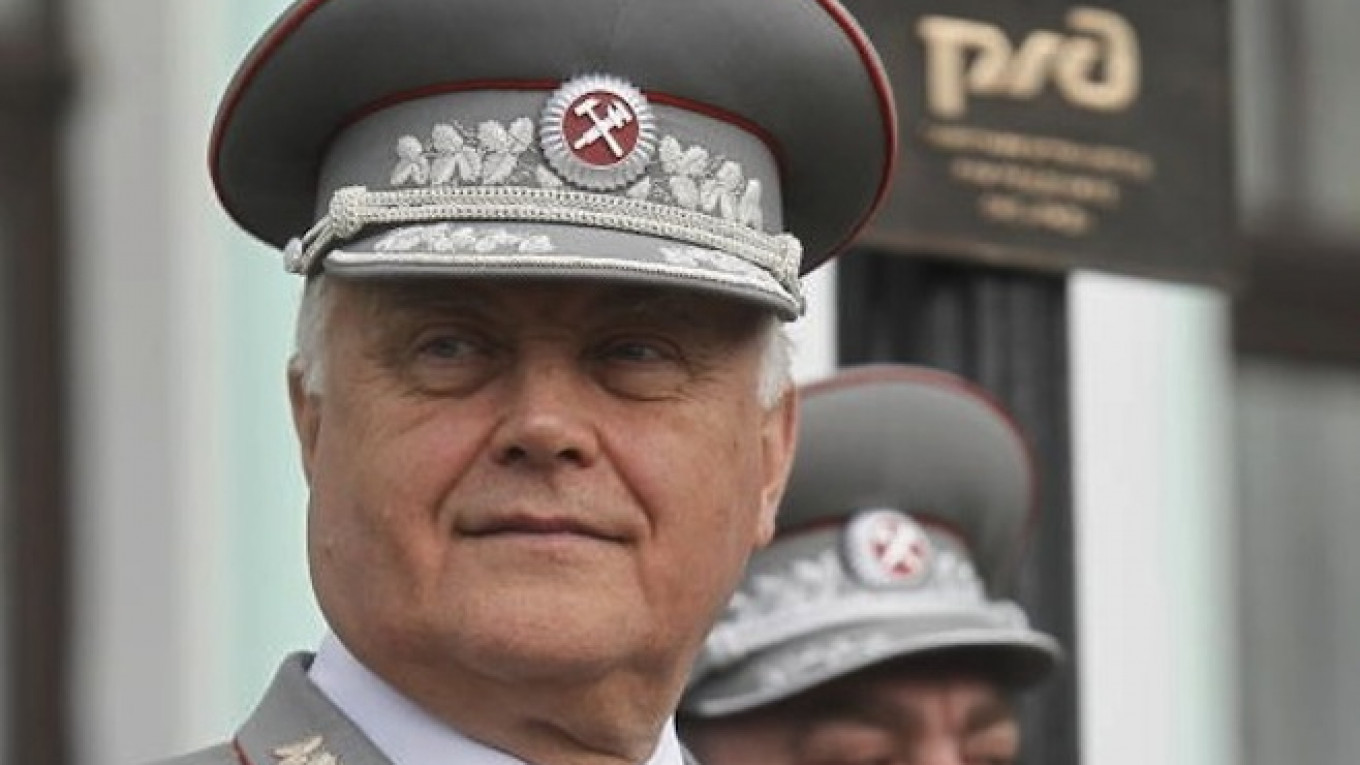A confidant of President Vladimir Putin accused the West on Thursday of trying to impose decadent values on the rest of the world, saying the bearded drag queen who won the Eurovision Song Contest last weekend symbolized its "ethno-fascism."
Russian Railways boss Vladimir Yakunin, who has said he is flattered to be on a U.S. sanctions list introduced in response to the Ukraine crisis, launched a broad attack on Western values at a conference in Berlin.
He said the U.S. spoke about fighting for democracy but wanted to impose its values on others. He cited sanctions slapped on the initiator of a law against homosexual "propaganda" and Conchita Wurst's Eurovision win last weekend.
"A vulgar ethno-facism from the distant past has once again become part of our lives," said Yakunin at the German-Russia Forum in Berlin.
"The ancient definition of democracy had nothing to do with bearded women but with the leadership of the people."
Even before the crisis in Ukraine erupted, Russia had drawn criticism from the West for its ban on what it termed propaganda about homosexuality. It says the ban is meant to protect minors.
The openly gay Austrian singer Wurst has called her success at the Eurovision Song Contest a victory over the forces of intolerance, including Russia's Putin.
Yakunin urged Europeans to distance themselves from the U.S. and said the sanctions imposed were "pure propaganda, purely political steps."
"Why is it that everything that comes from across the ocean is good — even the Iraq war?" said Yakunin. "But any attempt by Russia to make a proposal is viewed negatively."
Yakunin was targeted on a U.S. sanctions list in March in response to Russia's moves to annex the Ukrainian region of Crimea, which triggered the worst crisis in the West's relations with Russia since the Cold War.
A Message from The Moscow Times:
Dear readers,
We are facing unprecedented challenges. Russia's Prosecutor General's Office has designated The Moscow Times as an "undesirable" organization, criminalizing our work and putting our staff at risk of prosecution. This follows our earlier unjust labeling as a "foreign agent."
These actions are direct attempts to silence independent journalism in Russia. The authorities claim our work "discredits the decisions of the Russian leadership." We see things differently: we strive to provide accurate, unbiased reporting on Russia.
We, the journalists of The Moscow Times, refuse to be silenced. But to continue our work, we need your help.
Your support, no matter how small, makes a world of difference. If you can, please support us monthly starting from just $2. It's quick to set up, and every contribution makes a significant impact.
By supporting The Moscow Times, you're defending open, independent journalism in the face of repression. Thank you for standing with us.
Remind me later.






